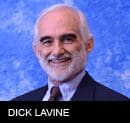
Mental Health & The Budget
This week, I submitted and delivered the following testimony to the Senate Finance Committee in regards to mental health funding in Texas: My name is Katharine Ligon. I am the

This week, I submitted and delivered the following testimony to the Senate Finance Committee in regards to mental health funding in Texas: My name is Katharine Ligon. I am the
Today, our associate director and senior health policy analyst Anne Dunkelberg testified on the benefits of strengthening Medicaid, as well as funding women’s health & family planning in Texas, at

Raise Your Hand Texas released a report on the myths and realities of school vouchers that is worth a a revisit as Senate and House committees debate school vouchers. Every

Today, Senate Finance began hearing testimony from Health and Human Services (HHS) agencies, which administer most of the state’s social services programs, such as health care for low-income Texans (4.3

We’re #5! You have heard many times how Texas ranks 38th on state spending on public schools and 50th on state spending overall per resident. Well, finally Texas ranks 5th

Today, the Governor delivered his 7th State of the State speech. Here are some of our takeaways… What we heard: Texas is a job creator. Actually, Texas has the third

As the Texas Legislature starts drafting a budget and writing laws that reflect the state’s values and respond to the state’s needs, it should ask: What does it really take

Is your phone loaded up with apps that you once thought would be useful, but now just take up space on your screen? Well, the State of Texas has a

Today, I testified at the first Senate Finance Committee hearing of the session. Below is a summary of what I shared with committee members: Last session, $5.3 billion was cut

Today, the Senate Finance committee kicked off public hearings on Senate Bill 1, the proposed state budget for 2014 and 2015. At $89 billion in General Revenue, the Senate’s starting